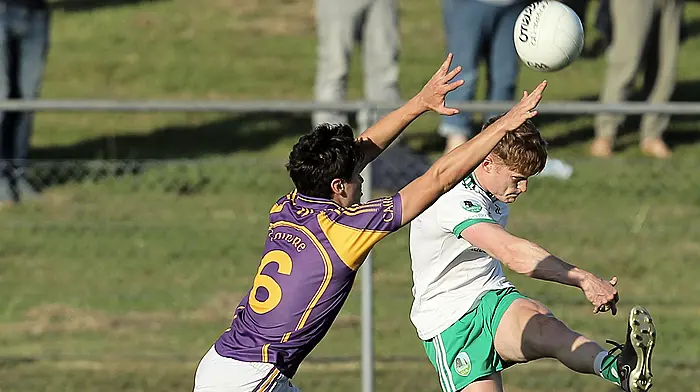IT’s difficult to fathom that in the year 2024 we are still having debates about the sentences being meted out to men who beat women.
The latest debate has come about because of the shock expressed by so many – both men and women – at the sentence handed out to soldier Cathal Crotty last week.
Crotty beat a woman unconscious on a public street but because of his role as a member of the Defence Forces, he was given a suspended sentence.
A suspended sentence means the sentence will only be served if the defendant comes to the attention of the gardaí during the term of the suspension – in this case for two years.
So once he doesn’t come to the notice of the gardaí for 24 months, he will never serve a day’s detention for beating a woman so badly she thought she was going to die. And remember – the subsequent trauma meant she lost her job.
Social Democrats leader and TD for Cork South West Holly Cairns this week expressed disgust and outrage at the sentence.
National newspapers rushed to point out that the sentence wasn’t unique and that Crotty was not the first member of the ironically-named Defence Forces to be given special treatment because of his job.
Yet the treatment he received was not, in itself, special.
Any reporter who has covered court proceedings in this jurisdiction will be all too familiar with the breadth of sentences handed out that don’t seem to fit the crime. They have witnessed very many victims of crime leaving a courthouse wondering why they bothered to pursue the case, given the seemingly lenient sentence given by the judge.
Deputy Cairns said this week that she had been contacted by a huge amount of people across West Cork who expressed their shock and anger over the Crotty case.
What has been forgotten in a lot of the coverage, is that the woman in this case, Natasha O’Brien, is a hero on two fronts – for standing up for other women in saying justice was not served by the sentencing, but also because she was beaten for calling out the homophobic comments being shouted on the street by Crotty that night.
She serves as a hero for so many people and is someone who should be feted for her incredible bravery and refusal to stay quiet and allow bad behaviour to go unchecked.
Barrister and newly-elected FF MEP Cynthia Ní Mhurchú has also drawn attention to a very important element in this entire debacle – that judges need more training.
Speaking from a position of undoubted knowledge – having worked on domestic violence cases in the courts – the lawyer described the Irish courts as ‘a daunting place for the victims of sexual violence’ – a shocking indictment of our system.
She went on to say that we need more training for Irish judges around sexual violence cases and a move towards a more ‘victim-centred approach’.
Ms Ní Mhurchú said she would welcome any measure that increases judicial understanding of issues relevant to their role in rape, domestic violence and sexual assault cases.
But isn’t it a very sorry state of affairs that we have reached this juncture in the Irish legal system where we are talking about special training for our judges, so they can be better equipped to sentence (predominantly) men when it comes to crimes of sex and violence? Should they not already be so equipped? And should there not be ongoing training, giving how quickly society is changing and the almost instant access, by all citizens, to violent/sexual content online?
When did we allow such a chasm to open up between the knowledge base of our judiciary and the reality of today’s increasingly challenging society?
Perhaps age is another factor. Irish judges can sit on cases until the age of 70 – meaning the average age of an Irish judge is higher than that of most professions.
This means that without constant training, they are losing touch with a rapidly changing world.
Maybe it’s not just time to look at training, or sentencing, but at a major overhaul of our entire legal system.
Strike is a cruel blow for all
THE ongoing dispute between Aer Lingus and its pilots could not have come at a worse time for families across Ireland planning their summer holidays.
Of course, the hope is that the timing of the strike action, happening as it is at the busiest time of the year, will force the hand of the airline to meet the pilots’ demands.
But that is of little consolation to the mothers, fathers and guardians across the country who have been planning and saving for long-deserved breaks all winter.
Many parents cannot reschedule days off as easily as an airline can reschedule a cancelled flight. And all that inconvenience is before we even start to think about the effect on the tourism industry, which was only beginning to get back on its feet after Covid. Such a cruel blow to all concerned.










